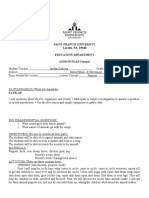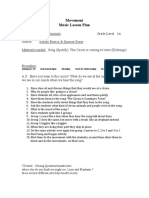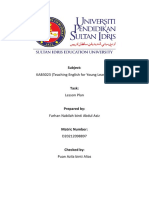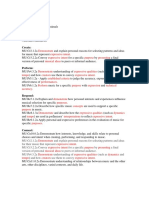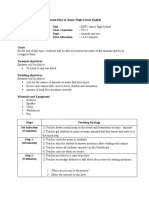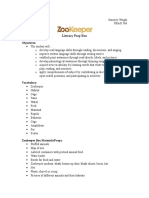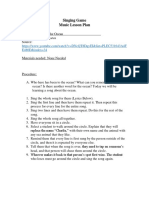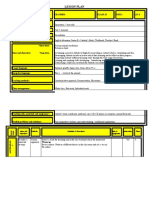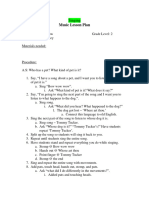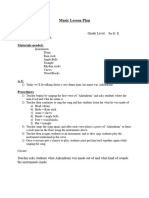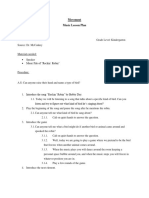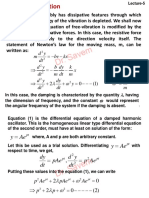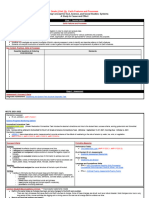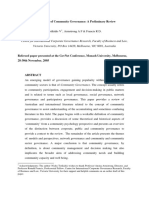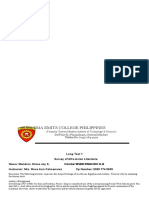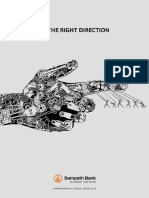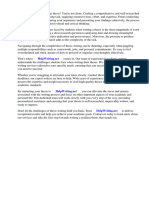0% found this document useful (0 votes)
44 views4 pagesSinging Lesson Plan
The lesson plan introduces the song "Punchinella" to kindergarten students. Students will learn the lyrics and hand motions to the song. They will play a game where one student dances like a zoo animal in the middle, and the other students copy the dance. This allows students to connect personally to music through creative expression, movement, and imagination. The goal is for students to make meaningful connections between animals and music while developing social, cognitive, and physical skills.
Uploaded by
api-710186282Copyright
© © All Rights Reserved
We take content rights seriously. If you suspect this is your content, claim it here.
Available Formats
Download as PDF, TXT or read online on Scribd
0% found this document useful (0 votes)
44 views4 pagesSinging Lesson Plan
The lesson plan introduces the song "Punchinella" to kindergarten students. Students will learn the lyrics and hand motions to the song. They will play a game where one student dances like a zoo animal in the middle, and the other students copy the dance. This allows students to connect personally to music through creative expression, movement, and imagination. The goal is for students to make meaningful connections between animals and music while developing social, cognitive, and physical skills.
Uploaded by
api-710186282Copyright
© © All Rights Reserved
We take content rights seriously. If you suspect this is your content, claim it here.
Available Formats
Download as PDF, TXT or read online on Scribd
/ 4



